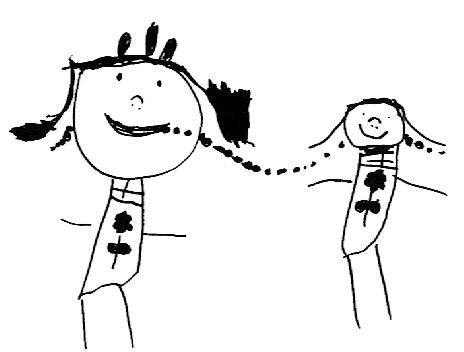
As pedagogical dialogue and practices gradually return to ‘normal,’ there appears to be a certain tension about what ‘normal’ is. What has COVID disrupted in us as individuals, and in our systems of education? Perhaps our practices should be critically reflected upon?
The future is uncertain, and while this can feel disempowering, even constraining at times, in Reggio Emilia, uncertainty is valued and plays a pivotal role in the learning process. Could COVID-19 be a catalyst for transformation, both systematically and pedagogically? Malaguzzi (in Cagliari et al., 2016 p. 335) said that “uncertainty can be turned into something positive when we start to test it and see it as a state of ferment, a motor of knowledge”. This statement by Malaguzzi should be seized and used to frame our thinking; to search for the positives.
In the context of the pandemic, while the global political rhetoric may focus on negative impacts, what are the positives and what can systems of education learn? Sir Ken Robinson, on ‘The Call to Unite on Livestream, recently proposed that we need to get …” people to connect, share ideas, to work together…to see future possibilities, to bring them about from joint projects, and the mutual support that comes from compassionate collaboration.” (Robinson, 2020). He also asked listeners to consider what will flourish and what will wither? What a great opportunity to reflect upon the values that underpin our work. What will flourish and what will wither in your pedagogical contexts?
Sir Ken’s thoughts and questions are synergetic with the Reggio Emilia approach, which have always declared education to be a political act. We can never underestimate our advocacy for children and their childhoods through the design of our daily contexts; with children, with families, and with colleagues and communities. As Stefania Giamminuti shared in the recent REAIE podcast, the idea of ‘education as a common good, “education produces far more than what can be measured.” If we look at the role of pedagogical documentation as an example, it is “shared to generate social and political debate about childhood, a new collective culture of childhood.” (Giamminuti, 2020)
How are we listening to and building upon the ideas, wonderings and emotions of children, families, and each other to inform our pedagogical choices? What are our priorities, and how will we reorient educational practices to flourish in our contexts?
You may consider:
- What might you be grappling with as you contemplate life returning to a new type of normal? Could this be an opportunity for research?
- Do you see uncertainty as a catalyst for transformation? How might you enable this to happen?
- What might you do differently in both the short and long terms in response to the time of pandemic? What lessons will inform change in your community?
In Reggio Emilia in 2019, Claudia Giudici, President of Reggio children declared,
“We who are working with children, we have a duty and a responsibility to work with the idea of hope. It is only hope that will induce people to action, with a desire to change things.”
References:
Cagliari, P., Castegnetti, M., Giudici, C., Rinaldi, C., Vecchi, V., Moss, P. (2016). Loris Malaguzzi and the schools of Reggio Emilia: A selection of his writings and speeches 1945-1993. London, England: Routledge.
Giamminuti, S. ‘Education as a Common Good’, REAIE podcast, May 2020
Guidici, C. April Study Tour, 2019.
Robinson, K. ‘My thoughts for the Call to Unite’, YouTube, retrieved 21/5/20

